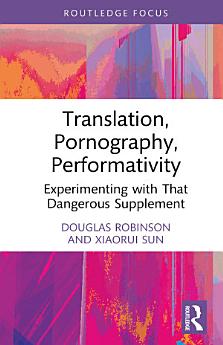Translation, Pornography, Performativity: Experimenting with That Dangerous Supplement
Over dit e-boek
In his 1684 “Essay on Translated Verse,” the Earl of Roscommon attacked “want of decency” in translation metaphorically by comparing it to picking up prostitutes in the park (“raking the park for stews”) instead of hanging out with “troops of faultless nymphs.” Sex work, and the graphic representation of sex work that Nathaniel Butler was the first to call “pornography” in print in 1638, is used as a metaphor for non-normative translation, which in Robinson and Sun’s hands becomes experimental translation.
En route to that goal, the authors take us through Butler on performativity and resistance, Derrida on supplementarity and iterability, and Haun Saussy’s innovative application of Derridean citationality to the use of a target-cultural “sponsor” or “bondsman” for translation. They take detours through Charles Baudelaire’s “Une charogne” and J.G. Ballard’s “The Drowned Giant.”
They deal with the performativity of pornography (and translatography) in Part I, the “unnatural” iterability of masturbation (and translation) in Part II, and experimental translation in Part III.
The theory-littered path this book takes through the metaphorics of translation will be of interest to scholars and students of translation studies, especially experimental translation and translation theory, but also media scholars interested in the philosophical complexities of performativity.
Over de auteur
Douglas Robinson, Professor of Translation Studies at the Chinese University of Hong Kong, Shenzhen, is one of the world’s most productive and most respected translation theorists.
Xiaorui Sun is Doug’s Ph.D. student at the Chinese University of Hong Kong, Shenzhen.







